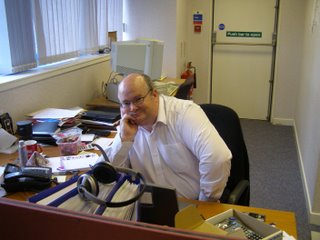 "Get your sails filled"
"Get your sails filled" Much has been mentioned about entrepreuership and venture capital. Even potentially good companies are often turned away by venture capitalists. A lot of people perhaps do not realize venture capital is risk money--and expensive money. In exchange for financing, entrepreneurs "give up" an equity claim based on some predetermined future value of the venture. When this equity is exchanged, there are many strings attached to the deal, most of them related to strategic and financial control.
While most venture capitalists understand and are willing to undertake business risk, the following problems will raise immediate red flags in most initial assessments:
Unable to articulate a business planMore often than not, entrepreneurs are expected to articulate a business plan, both verbal and written to the potential investors. A business plan should state clearly how the future cash flow would be achieved. I have met entrepreneurs who have had the goal of tripling their sales revenue within 3 years, yet they could not articulate a strategy for how to accomplish it (i.e. how to increase sales). This leaves the investor asking questions like would the increased revenue be achieved by increasing the sales force, increasing advertising expenses, or other factors?
When an entrepreneur cannot articulate his business plan, he signals to most institutional investors that he does not know how to deliver the future cash flow. This often leads investors to discount whatever future cash flow streams the entrepreneur might have in his financial projections.
Not convinced of the business modelThe business model will demonstrate to the investors how the business generates cash flow and sustains itself. Very often, entrepreneurs and management cannot articulate clearly the business model to the venture capitalists. Investors need to know how the business generates revenue from its customers and competes effectively in the industry it operates in. Investors usually get cold feet when the revenue stream is unstable or the financial projections are too bullish without any substantiated assumptions.
The entrepreneur and management are expected to "know the business numbers cold." Most do not seem to understand the differences between the cash flow and profit of a business operation, and many lack a good grasp of the main numbers - revenue, sales volume, operating cash flow, operating expense, capital expenditure and net profit.
Heavy capital expenditure is to be constantly funded by shareholdersCapital expenditure is expected to be funded through internally generated cash flows and not regular shareholders' funding. While shareholders may be generous in the initial years of business expansion, they expect the business to generate cash flows and pay dividends to the shareholders. If the bulk of the cash flow generated by the business will be used to fund regular capital expenditure, there will be little cash left for the shareholders.
An often-quoted strategy is expanding the business via acquisitions, funded by shareholders. As the economy deregulates and competition heats up, investors will begin to actively scrutinize this strategy, demanding to know the payback period and return from the acquisitions.
Entrepreneurs' personal financial problemsThough this may sound alien to some entrepreneurs, the Asian economic crisis has been an eye opener to institutional investors. There are horror stories of entrepreneurs who, due to their personal financial problems, siphon cash out of profitable business operations, leaving the institutional investors holding minority stakes in a flux.
While venture capitalists do not expect the entrepreneurs to personally hoard loads of cash, a seemingly high liability in the form of bank loan or property and shares pledged will immediately raise red flags.
Poor corporate governanceCorporate governance is seemingly moot in Asia. Most of the company directors are management as well, and standards are generally more lax in Asia than in the U.S. or Europe, where many venture capitalists have their home offices.
The lack of transparency is a common complaint among institutional investors in Asian companies. Common examples of poor corporate governance include default of bank loans and bond issues, infrequently published accounts of private companies, and infrequent board meetings to address concerns raised by the institutional investors.
Poor industry outlookNo matter how good the entrepreneur and management are, institutional investors usually shun companies operating in industries with a poor outlook. Poor industry outlook implies a low growth industry, obsolete products, and a short life span of technology products.
Continual technological changes have resulted in most institutional investors becoming more sensitive to short product life spans. Arguably, the product life span of some technology products averages only 2-3 years, about the time venture capitalists consider exiting from their investments.
Unless the entrepreneur and management can demonstrate that they are able to seize opportunities and adapt accordingly to different industry landscapes, a poor industry outlook will raise immediate red flags to most institutional investors.
Lacks visionProbably the most basic ingredient of a successful entrepreneur or CEO is vision. Vision implies the ability to look beyond present industry trends or operational difficulties to chart a new direction for the company. For example, an Indonesian tapioca starch company, not contented with remaining a low value upstream producer, succeeds into venturing downstream to food flavor enhancers and citric acid, ingredients used in syrup in soft drinks. If an entrepreneur cannot demonstrate his vision to venture capitalists, it is unlikely that he will receive funding.
Uncohesive management teamWhile not everyone will succeed as an entrepreneur, each individual member of an assembled team must be able to execute his or her tasks efficiently. This is especially important in small startups, where "dead wood" often proves to be an expensive liability to the companies.
The business world is getting more competitive with the opening up of more sectors in the economy. However, I believe there will continue to be good deals out there. An astute investor will be able to differentiate between a cosmetically well-packaged startup and fundamentally sound company.


















